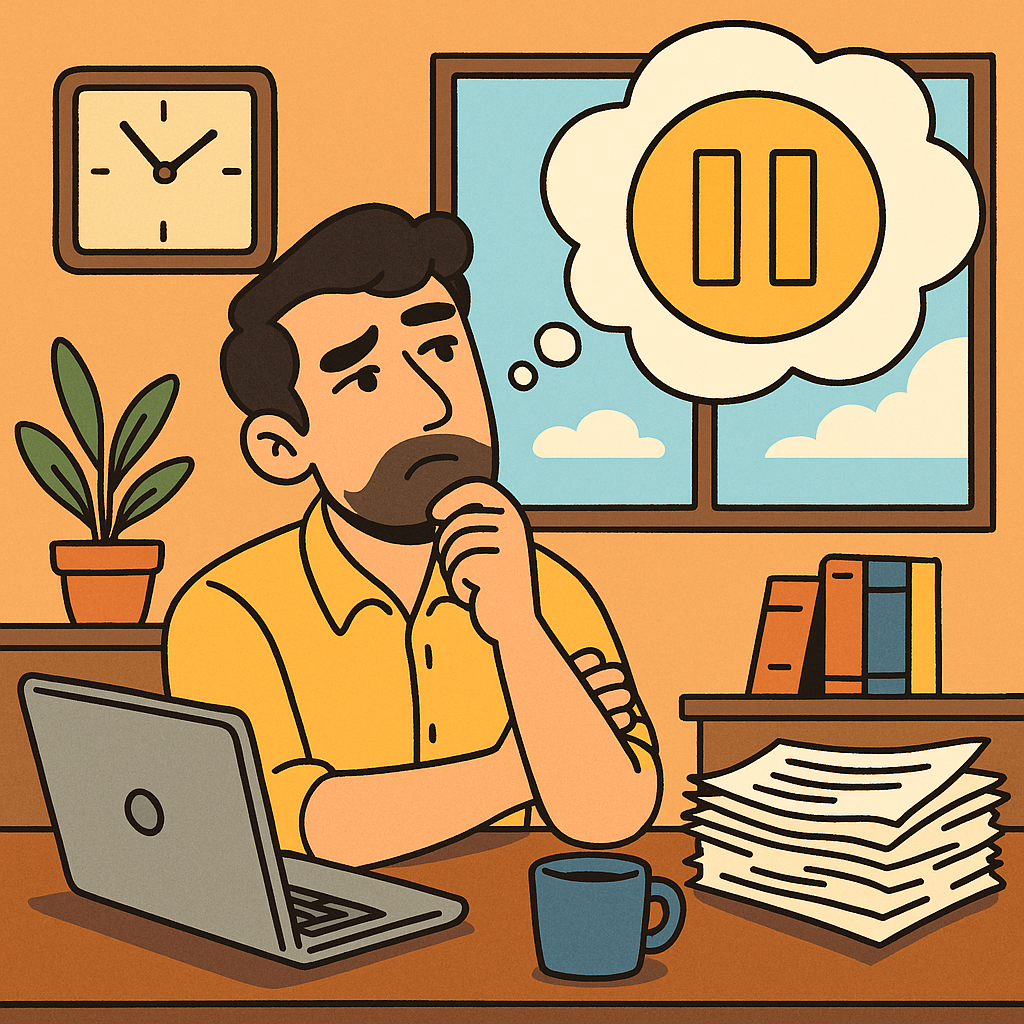We’ve all felt it—that sticky, foggy sensation where your mind jumps from one thought to the next, like browser tabs left open too long. You try to focus, but everything feels scrambled. You’re not even doing anything particularly hard, and yet… you’re exhausted. That’s mental clutter, and it’s not just annoying—it’s energetically draining, emotionally taxing, and mentally overwhelming.
This article breaks down why mental clutter weighs us down, what causes it, and how to reduce the noise so you can think more clearly, feel lighter, and function better.

What Is Mental Clutter?
Mental clutter refers to the overload of thoughts, worries, decisions, reminders, and distractions that constantly swirl in your mind. It’s like carrying around a mental to-do list that never ends.
Symptoms include:
- Difficulty concentrating
- Trouble making decisions
- Racing or looping thoughts
- Feeling mentally fatigued even after a restful night
- Procrastination or indecision
Unlike physical clutter, you can’t see it—but you can definitely feel it.
Why Mental Clutter Feels So Draining
🧠 1. It Overloads Your Working Memory
Your brain can only hold a limited amount of information at a time—what psychologists call “working memory.” When too many thoughts compete for attention, your brain struggles to prioritize, filter, or process them efficiently.
This mental juggling act leads to:
- Decreased productivity
- Increased forgetfulness
- Constant low-level stress
⚡ 2. Every Open Loop Drains Mental Energy
“Open loops” are tasks or worries you haven’t resolved—emails to reply to, errands to run, things you meant to say. Each unfinished task acts like a running app in the background, draining your mental battery.
David Allen, author of Getting Things Done, coined the idea that your mind is for having ideas, not holding them. The more you try to keep track of everything in your head, the more exhausted you’ll feel.
😣 3. It Triggers the Stress Response
Unresolved thoughts and information overload keep the brain in a state of alertness, which elevates cortisol and keeps your nervous system in fight-or-flight mode. This constant stimulation reduces your capacity for focus, rest, and emotional regulation.
Even something as simple as remembering to reply to a text message can subtly spike your stress levels when it lingers in your mind for too long.
Where Mental Clutter Comes From
- Digital overload: Endless notifications, emails, messages, and content feed the noise.
- Multitasking: Trying to juggle tasks splits your attention and clutters your thinking.
- Unfinished tasks: Incomplete projects or postponed decisions linger mentally.
- Lack of boundaries: Without clear work-life separation, your brain never fully shuts down.
- Internal pressure: Perfectionism and overthinking amplify clutter with “what ifs” and “should haves.”
How to Declutter Your Mind
✅ 1. Brain Dump Daily
Write down every task, worry, idea, or reminder crowding your brain. Don’t organize it—just get it out of your head.
This creates psychological relief by closing open loops and externalizing the load.
🕒 2. Time-Block Your Day
Use calendar blocks or timers (like the Pomodoro Technique) to give each task its own space. When your brain knows it doesn’t have to remember everything at once, it relaxes.
✍️ 3. Keep a “Later List”
Create a separate list for ideas, goals, or to-dos you’re not working on now but don’t want to forget. This lets your brain off the hook without losing track of what matters.
📵 4. Limit Input
- Turn off nonessential notifications.
- Set boundaries for when you check messages or social media.
- Give your brain time to digest before consuming more information.
🧘 5. Create Mental “White Space”
Practices like meditation, deep breathing, or walking without a podcast create moments of intentional stillness—space where your brain isn’t required to react or decide.
These moments aren’t a luxury; they’re maintenance.
The Surprising Benefits of a Clear Mind
When you reduce mental clutter, you experience:
- Sharper focus and decision-making
- Increased energy and mental stamina
- Improved sleep, thanks to a calmer nervous system
- Emotional clarity, as you’re no longer reacting to a noisy inner world
- Greater creativity, because your brain finally has space to think expansively
Final Thoughts: Clarity is a Choice
You may not be able to control every input life throws your way, but you can build habits that help your mind stay clear, grounded, and focused.
Mental clarity isn’t about having no thoughts—it’s about curating which ones you keep.
And just like you declutter your closet or desktop, clearing your mental space is a habit worth practicing—not just for productivity, but for peace.
References
- Allen, D. (2001). Getting Things Done: The Art of Stress-Free Productivity. Available at: https://inspiredbyislam.wordpress.com/wp-content/uploads/2022/08/getting-things-done-the-art-of-stress-free-productivity-david-allen-z-lib.org_.pdf
- American Psychological Association – “Cognitive Load Theory” Available at: https://www.apa.org/news/press/releases/stress/2019/stress-america-2019.pdf
- National Institutes of Health – “The Restorative Effects of Nature and Mindfulness” Available at: https://pmc.ncbi.nlm.nih.gov/articles/PMC10999151/






